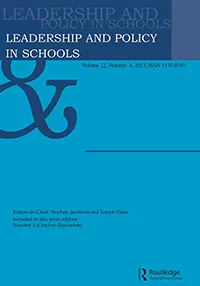Abstract
During the pandemic, principals played crucial roles in responding to the
exacerbated inequities that accompanied new modes of learning. Much less
understood and explored is the role played by school districts in supporting
these responses. This study seeks to understand how districts responded to
the pandemic, and the potential of these responses to promote equitable
access for marginalized students. We analyzed data from three different
American School District Panel COVID-19 surveys administered to school dis-
tricts in 2021 to provide answers to these questions. We report our findings
across three themes: ensuring equitable access through direct services, mak-
ing changes to curriculum and instructional practices, and expanding schools’
capacity to address equity. We conclude with the implications for the role of
school districts in supporting principals’ capacity to advance equity-oriented
leadership practices, leadership preparation, and future research.
exacerbated inequities that accompanied new modes of learning. Much less
understood and explored is the role played by school districts in supporting
these responses. This study seeks to understand how districts responded to
the pandemic, and the potential of these responses to promote equitable
access for marginalized students. We analyzed data from three different
American School District Panel COVID-19 surveys administered to school dis-
tricts in 2021 to provide answers to these questions. We report our findings
across three themes: ensuring equitable access through direct services, mak-
ing changes to curriculum and instructional practices, and expanding schools’
capacity to address equity. We conclude with the implications for the role of
school districts in supporting principals’ capacity to advance equity-oriented
leadership practices, leadership preparation, and future research.
PDF Upload
Feature Image
Image
